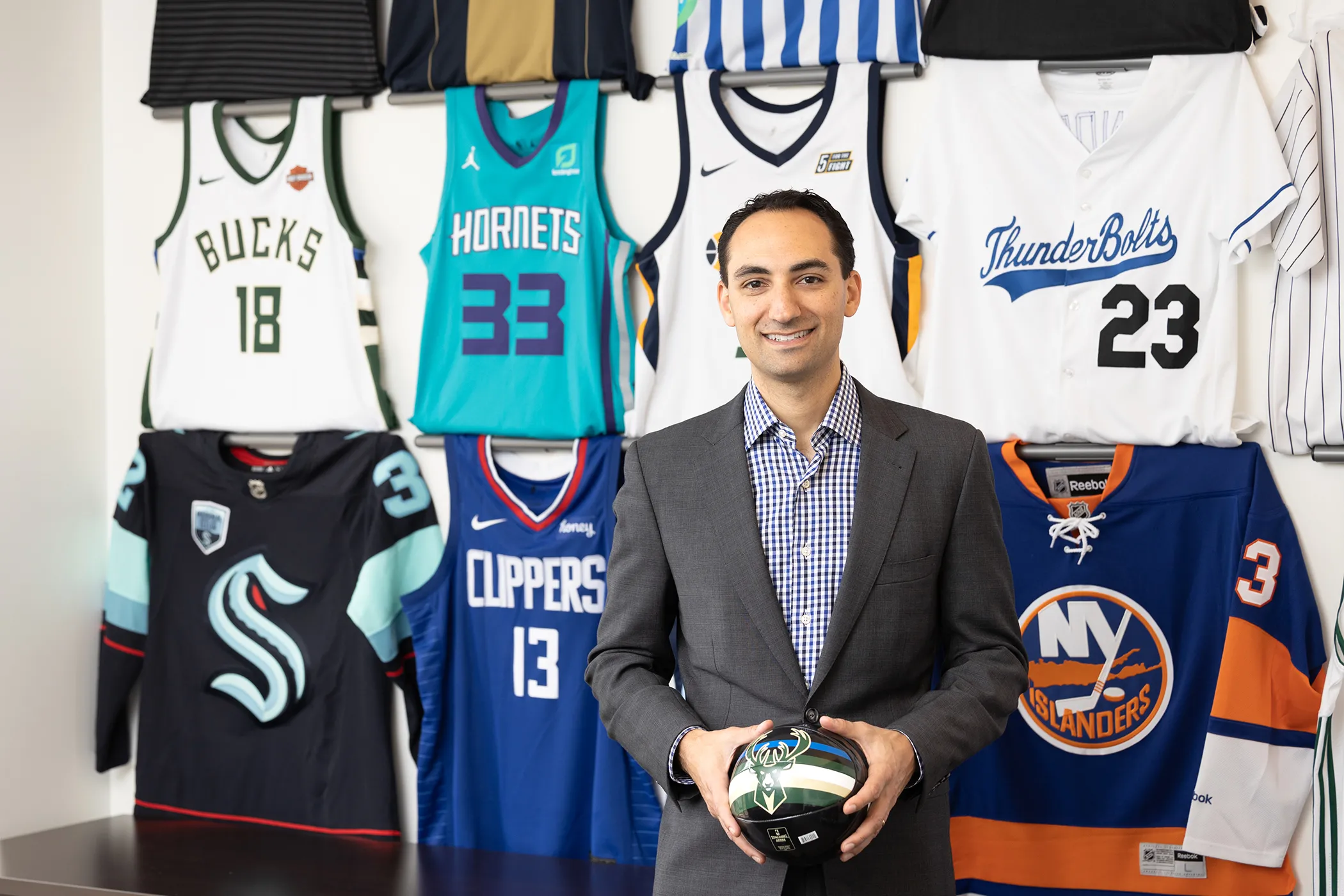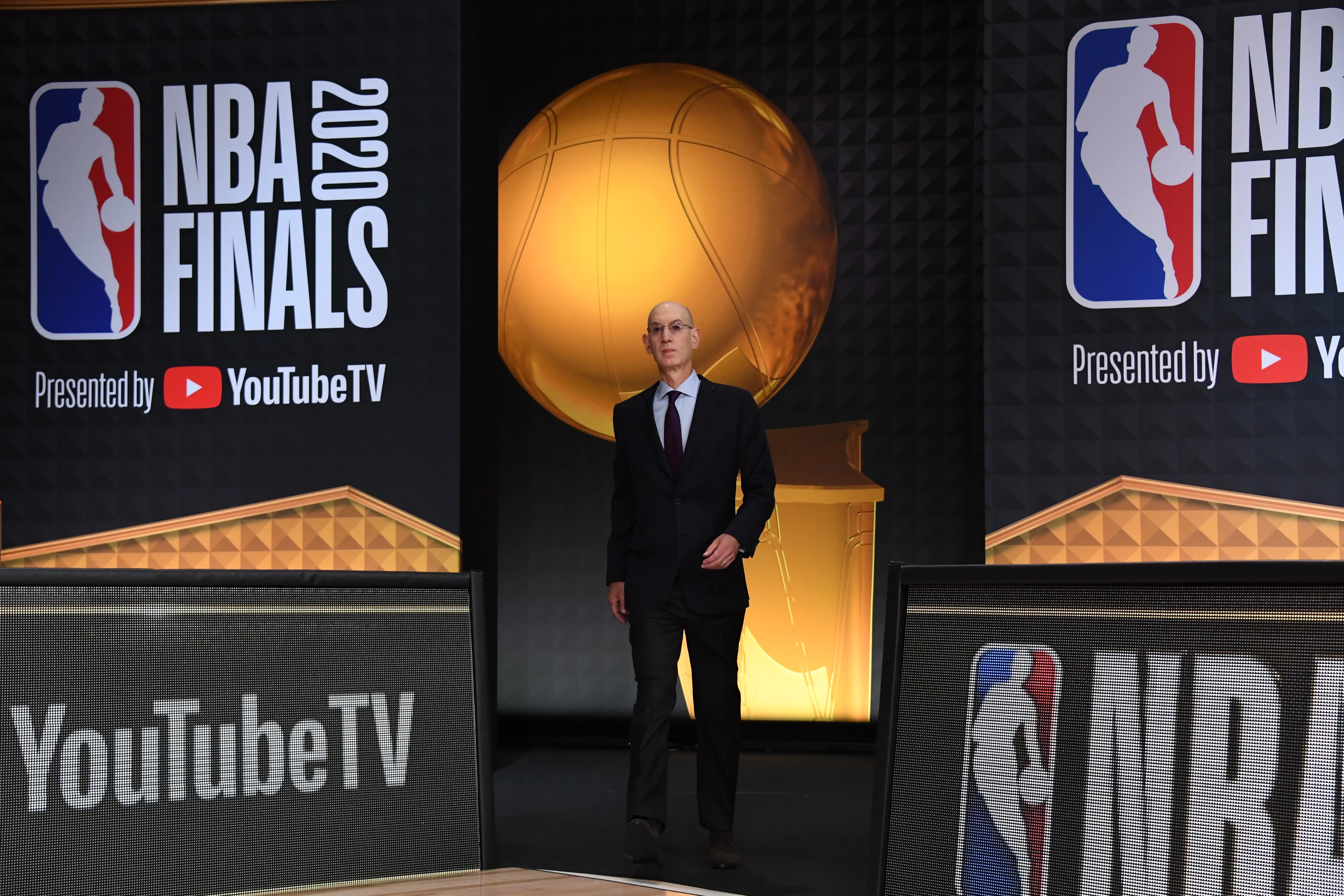Daniel Render, ’12, Partner at Katten Muchin Rosenman

After graduating from Haverford College, Daniel Render, ’12, spent a summer interning for a minor-league baseball team in Baltimore. Using that position as a springboard, he landed an internship and then a full-time job working in sales and marketing for the Chicago White Sox.
While he loved being in sports, Render did not want to stay in sales and marketing for the long term. He considered furthering his education by going to business or law school, ultimately deciding that being a lawyer best aligned with his interests.“I went to law school thinking I would like to parlay it into reentering the sports industry in a different way, but I was open to other things,” he recalled. “And then, lo and behold, I got to law school and found I was interested in a number of other areas (from general corporate law to free speech and constitutional law matters).”
After he graduated, he took a job doing traditional corporate work with Sidley Austin LLP, which, at the time, did not have a robust sports practice. Render enjoyed his time at the firm, but when an opportunity presented itself to work at Katten and do sports-related work, it was a “no-brainer” for him to pursue it. “I got to stay in Chicago, do the same type of corporate work I was doing at Sidley, but for clients and an industry I was particularly interested in,” he explained.
Today, as a partner at Katten, Render represents a wide range of clients in the professional sports and technology industries. His clients include teams and ownership groups in the National Basketball Association, the National Hockey League, the National Football League, Major League Soccer, and Major League Baseball. He also represents arenas and stadiums, and investors and brands that sponsor teams, arenas, and stadiums.
A typical day for Render might involve drafting a sponsorship agreement for a team or brand, negotiating an investment transaction for a team, or talking to one of the professional leagues about the approval process for an ongoing transaction. “There is also a good deal of interpersonal interaction, reading, and analytical time, which is a really nice mix,” he said.
A favorite recent transaction of Render’s was representing a buyer group that purchased control of the Charlotte Hornets NBA team.
“We were negotiating against Michael Jordan, who was my childhood hero, and his lawyers,” Render recalled. “I was given the opportunity to sit in the first chair and lead all the negotiations, manage the process, and interact directly with our client and investors. We were also working on a compressed time frame. It was tremendously difficult and challenging, but once we got it done, tremendously rewarding.”
For Render, the most fulfilling part of practicing sports law is the strong relationships that naturally form with clients and the close-knit community of fellow lawyers. “I often find myself working with people I genuinely like, which helps reduce unnecessary disputes,” he noted.


